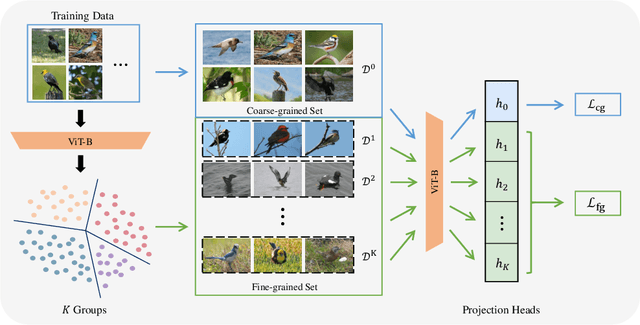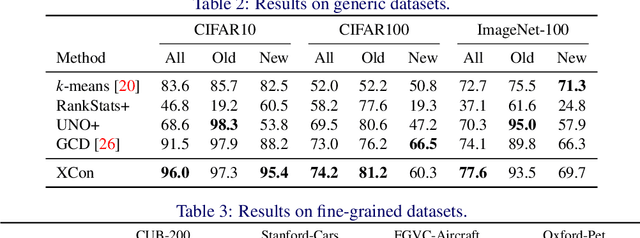XCon: Learning with Experts for Fine-grained Category Discovery
Paper and Code
Aug 03, 2022



We address the problem of generalized category discovery (GCD) in this paper, i.e. clustering the unlabeled images leveraging the information from a set of seen classes, where the unlabeled images could contain both seen classes and unseen classes. The seen classes can be seen as an implicit criterion of classes, which makes this setting different from unsupervised clustering where the cluster criteria may be ambiguous. We mainly concern the problem of discovering categories within a fine-grained dataset since it is one of the most direct applications of category discovery, i.e. helping experts discover novel concepts within an unlabeled dataset using the implicit criterion set forth by the seen classes. State-of-the-art methods for generalized category discovery leverage contrastive learning to learn the representations, but the large inter-class similarity and intra-class variance pose a challenge for the methods because the negative examples may contain irrelevant cues for recognizing a category so the algorithms may converge to a local-minima. We present a novel method called Expert-Contrastive Learning (XCon) to help the model to mine useful information from the images by first partitioning the dataset into sub-datasets using k-means clustering and then performing contrastive learning on each of the sub-datasets to learn fine-grained discriminative features. Experiments on fine-grained datasets show a clear improved performance over the previous best methods, indicating the effectiveness of our method.
 Add to Chrome
Add to Chrome Add to Firefox
Add to Firefox Add to Edge
Add to Edge